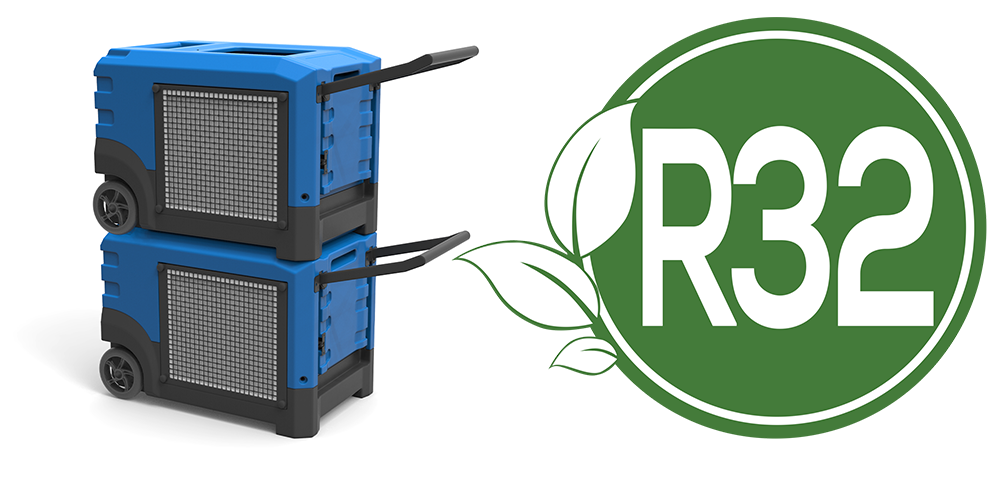Dehumidifiers can be environmentally friendly, but it largely depends on their design, efficiency, and how they’re used. Let’s break it down clearly.
1. Positive Environmental Aspects of the Dehumidifier
(1) Prevent Mold and Building Damage
By reducing indoor humidity, LGR dehumidifiers prevent mold, mildew, and rot, which extends the life of furniture, walls, and buildings — reducing waste and resource use for repairs or replacements.
(2) Improve HVAC Efficiency
Dry air is easier to cool and heat. When a dehumidifier keeps humidity in check, your air conditioner or heater doesn’t have to work as hard, saving energy and reducing carbon emissions.
(3) Energy-Efficient Models Exist
Modern dehumidifiers with Energy Star® certification use 15–30% less energy than conventional ones. Some use R-32 or R-290 refrigerants, which have much lower global warming potential than older refrigerants like R-22 or R-410A.
(4) Long Lifespan and Recyclable Materials
Many high-quality commercial and industrial units are made with recyclable metals (e.g., aluminum, copper) and durable components, reducing waste over time.
2. Environmental Concerns of the Dehumidifier
(1) Electricity Consumption
Dehumidifiers do consume a noticeable amount of electricity, especially in large or very damp spaces. This can increase your carbon footprint if your electricity comes from non-renewable sources.
(2) Refrigerant Impact
Older or cheap models may still use high-GWP refrigerants, which can harm the environment if leaked or improperly disposed of.
(3) Manufacturing and Disposal
The production of dehumidifiers involves metal, plastic, and electronic components, which have environmental costs during manufacturing and end-of-life disposal.
3. How to Make a Dehumidifier Use More Eco-Friendly
Choose Energy Star–certified models.
Select the right capacity — oversizing wastes energy, undersizing runs constantly.
Clean filters and coils regularly for optimal efficiency.
Use smart or timer settings to run only when the humidity is high.
Ensure proper refrigerant recycling when disposing of old units.
Combine with natural ventilation when possible to reduce running time.
Conclusion
Dehumidifiers themselves are not inherently bad for the environment — in fact, when chosen wisely and used efficiently, they support energy conservation, improve air quality, and protect property, all of which contribute to sustainability.
Post time: Oct-29-2025


